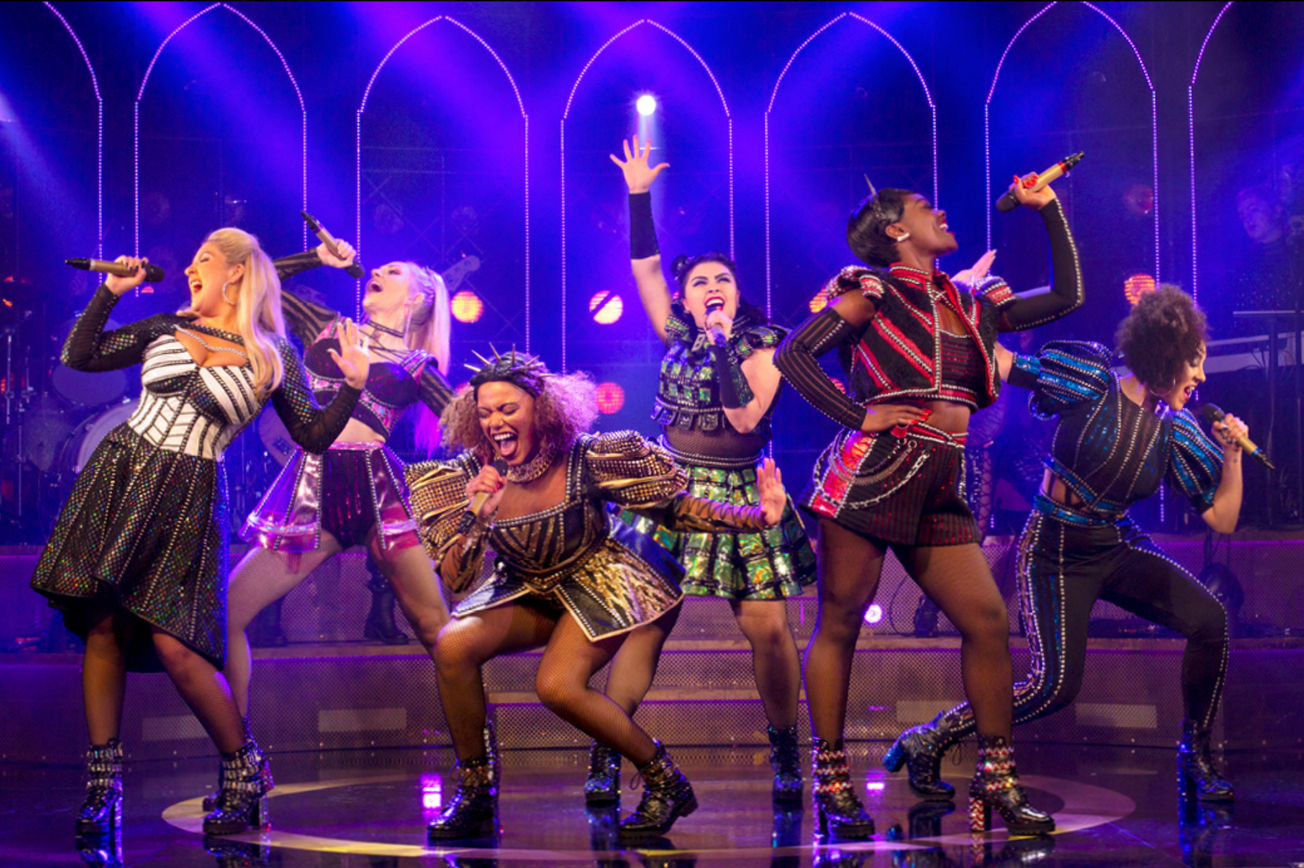As he looks to reopen “Six” in London this November, producer Kenny Wax has the advantage of having a small cast, an 80-minute show and relatively low running costs.
Still, working amid rising coronavirus infections and restrictions in the United Kingdom, Wax acknowledges there’s a possibility the production will be shut down. He’s choosing to move forward for one main reason.
“The answer is to give work to staff,” Wax said.
Wax is reopening “Six” at the Lyric Theatre in London for an 11-week socially distant run just as government aid for furloughed workers ends. While the musical’s framework makes it easier to remount during a pandemic, Wax and other Broadway industry leaders say Broadway will not see a similar move with ”Six” or other shows due to higher financial constraints, as well as current health and safety guidelines.
In general, union contract rates are multiples higher on Broadway than on the West End. And even on the West End, Wax acknowledges his production has the advantage of staying lean. The restart cost for “Six” is £850,000, a number which Wax, who is also the president of the Society of London Theatre, notes pales in comparison to the cost for larger productions.
As part of the show’s remounting, Wax plans to re-rehearse the cast, refit costumes and build a new set, which he plans to later reuse for a “Six” world tour. Cast members will be tested biweekly for COVID-19. Wax was planning to bring “Six” to 12 outdoor drive-in concert venues across the UK this summer, but the tour was cancelled due to coronavirus concerns.
Nimax Theatres, the owner of the Lyric and five other West End theaters, which it also plans to reopen, is covering the cost of preparing the theater, which includes sanitizing the space, respacing the rows between the seats and preparing one-way walking routes for audience members. Tickets will be contactless and audience members will undergo temperature checks upon entry.
Once the run begins, “Six” plans to take over the continuing coronavirus safety costs in the theater. Wax is also looking into the cost of purchasing COVID-19 testing equipment, as he plans to bring back his other smaller-scale shows, “The Play That Goes Wrong,” “Magic Goes Wrong” and an unannounced production within the same time frame.
“We believe that our particular productions are of a size that we can restart without as much risk as we would have had if we were reopening one of the major musicals,” Wax said.
Though the theater will be practicing social distancing in the audience, the production will still be able to fill about 550 seats per performance — an increase over the 340 seats at the Arts Theatre, “Six’s” former London home.
The first two weeks have already sold out, Wax said. If the rest of the run follows suit, the production, which has running costs of about £70,000, can expect a weekly profit.
That would not be the case on Broadway.
Due to higher running costs and multiple union contracts, restarting “Six” or a similar production with social distancing on Broadway would not be economically feasible. The economics are compounded by the need to socially distance within orchestra pits and backstage.
“To do that or do anything remotely like that, we’d have to break the financial model and nobody is willing to do that,” said Charlotte St. Martin, president of the Broadway League.
And, at the moment, restarting an indoor production in New York is a non-starter, as Gov. Cuomo’s lockdown on Broadway theaters has not yet been lifted. While COVID-19 numbers are low within New York, the U.S. has the highest total number of coronavirus deaths in the world.
Many industry members believe that Broadway can only resume when there is a better treatment option for the coronavirus or the availability of a vaccine.
“The economics are obviously an issue, but the primary issue is when is it safe?” said Kevin McCollum, one of the Broadway producers of “Six.”
“Six” does plan to be one of the first shows back when Broadway reopens, McCollum said. Getting there, however, will take support from the government in the form of the Save Our Stages Act, as well as an additional funding package to help restart theater, he said.
In London, Wax acknowledges the coronavirus restrictions are always changing — on Tuesday restaurants, pubs and bars were ordered to close by 10 p.m. beginning later this week. But he’s prepared to continue working to remount his shows in whatever manner he can.
“If I have to close down again, I’ll close down and we’ll have another go,” Wax said.


























































